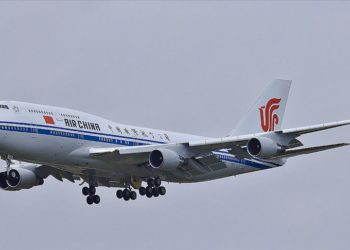 Russian companies shut out of Western markets as a result of the Ukraine crisis are scouting the possibility of raising cash via Chinese or Singapore bonds instead, even if a large-scale funding switch to Asia is likely to be a tall order.
Russian companies shut out of Western markets as a result of the Ukraine crisis are scouting the possibility of raising cash via Chinese or Singapore bonds instead, even if a large-scale funding switch to Asia is likely to be a tall order.
Asian investors, eyeing the risks associated with Western sanctions, could prove a hard sell.
Usually prolific borrowers, Russian firms’ bond and loan issuance this year has languished as lenders fear getting caught up in U.S. and European Union sanctions imposed on Russian individuals in retaliation for Moscow’s annexation of Crimea and support for separatists in eastern Ukraine.
But with $150 billion or so owed in debt payments this year, the scramble for funds is driving firms to Asia, a region with cash-rich investors and governments that are less critical of the Kremlin’s actions.
“We may see some developments in Asia in exotic currencies such as the ‘dim sum’ market or in Singapore dollars. We are seeing Russian issuers expressing interest in those segments of the market,” said Cecile Camilli, managing director for CEEMEA debt capital markets at Societe Generale.
“Dim sum” bonds refers to debt denominated in China’s yuan but sold outside China, most commonly in Hong Kong.
“At the moment it is non-deal related, but they are preparing themselves,” Camilli added.
Russia’s state-run Sberbank last week held a so-called “non-deal” roadshow in Singapore and Hong Kong — setting out its stall for investors to test potential interest in lending to the bank. Another government entity, Gazprom, will meet Asian investors next week following news it is close to a crucial gas supply deal with China.
Gazprom, Russia’s top natural gas producer, plans to supply China with 38 billion cubic meters of gas per year — about a quarter of the company’s exports to Europe — from 2018, and President Vladimir Putin has urged companies to boost their exposure to Asia.
Officials at banks’ syndicated loan desks said Gazprom was in the market to extend an existing loan maturing in July.
So far, Russia’s Asian borrowing remains modest. It includes just more than $1 billion worth of yuan bonds since 2004, and just shy of that amount in Singapore dollars, according to data from Thomson Reuters. There have been 11 issues in total, the data shows.
The push for eastern finance is part of a broader plan to diversify Russia’s economy away from Europe and toward Asia.
Putin will visit China next month while Igor Sechin, the CEO of state-run oil firm Rosneft and who is on the latest U.S. sanctions list, last month traveled through Asia to shore up ties with eastern allies.
“Asia is a large market and we have been looking at it for quite a long time … Over the long term, these markets may supplant the European and American markets for us, but it will not be quick,” Alexander Ivanov, deputy head of state-run bank VEB, told reporters earlier this month after Western banks declined to syndicate a new loan to replace a maturing facility.
Dim sum bonds currently make sense for issuers because the cost of swapping future payments from one currency to another via cross-currency swaps between offshore yuan and the dollar — has become progressively cheaper since late February when the yuan weakened sharply.
That means it is relatively cheap to swap bond proceeds into dollars if that is the currency the issuer ultimately needs.
There are difficulties however. One is size — the whole dim sum market is worth about $110 billion, less than half of what Russian companies have borrowed in euro- and dollar bond markets in the past decade. Second, the market cannot provide longer-term funding, with two to three year maturities the most common.
“Asian markets cannot replace the volume the Russians have in dollars, it is a question of getting some money in and posturing to show they do not need U.S. investors,” said Apostolos Bantis, a corporate debt strategist at Commerzbank.
“Asian investors may feel more comfortable with Russian risk than Western investors. And if China and Russia do get closer, that market is going to grow.”
But it remains to be seen whether Asian fund managers will be willing to handle Russian risk. U.S., European and Japanese sanctions are less harsh than expected but investors and bankers, even outside these regions, may look carefully at the reputational risks associated with a Russian deal at the moment
Bankers in Asia note that some syndicate desks could be reluctant to handle such deals, fearing U.S. fines in future of the sort imposed on institutions for dealing with Iran.
And the market in existing Russian dim sum debt has more or less dried up, with prices marked sharply lower. Yields on a 1 billion yuan bond from a Gazprombank arm and on VTB’s 500 million yuan issue are up 200 basis points this year, rising far more than non-Russian bonds.
Kenzaburo Fukuhara / Reuters














